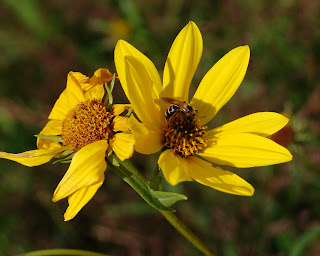This week’s publication of findings in the study of Colony Collapse Disorder provides beekeepers encouragement that we are closer to having an understanding of the pathogens that are associated with the disorder. With this knowledge, we now want to know if CCD will become a controllable disorder, like so many of the conditions that beekeepers regularly face in managing their colonies. Beekeepers want to know what things they need to do to help maintain healthy colonies. It is remarkable how resilient the honey bee has proven to be. It has survived for millions of years under changing environments and in the presence of myriad pests and pathogens. This survival illustrates the strength and importance of natural selection. Only those honey bees that held the traits that allowed their survival and reproduction in the face of current environmental conditions were able to pass along their genes to another generation. Often for the survivor it is the chance result of being in the right place with the right trait at the right time. The trait may be a natural resistance to a particular pathogen.
CCD has taken a large toll on honey bees. Annual losses of colonies in North America are one in three. Recent years have found a number of pests and pathogens entering the US, most brought in unintentionally through expanding world trade: tracheal mites, Varroa mites, small hive beetles, Nosema ceranae, and a number of viruses. This week’s CCD report also listed two viruses, previously unknown, as now existing in the US. How will beekeepers adjust their hive management with the new understanding of a relationship between Nosema and Invertebrate Iridescent Virus? The larger question is: Will a line of survivor honey bees emerge that are resistant to CCD? There is reason to believe so. When tracheal mites arrived in the US in 1984 they decimated colonies. Now after a few hundred brood cycles, the parasite is much less lethal. Today’s photo: native leaf-cutting bee on perennial sunflower.
--Richard





No comments:
Post a Comment